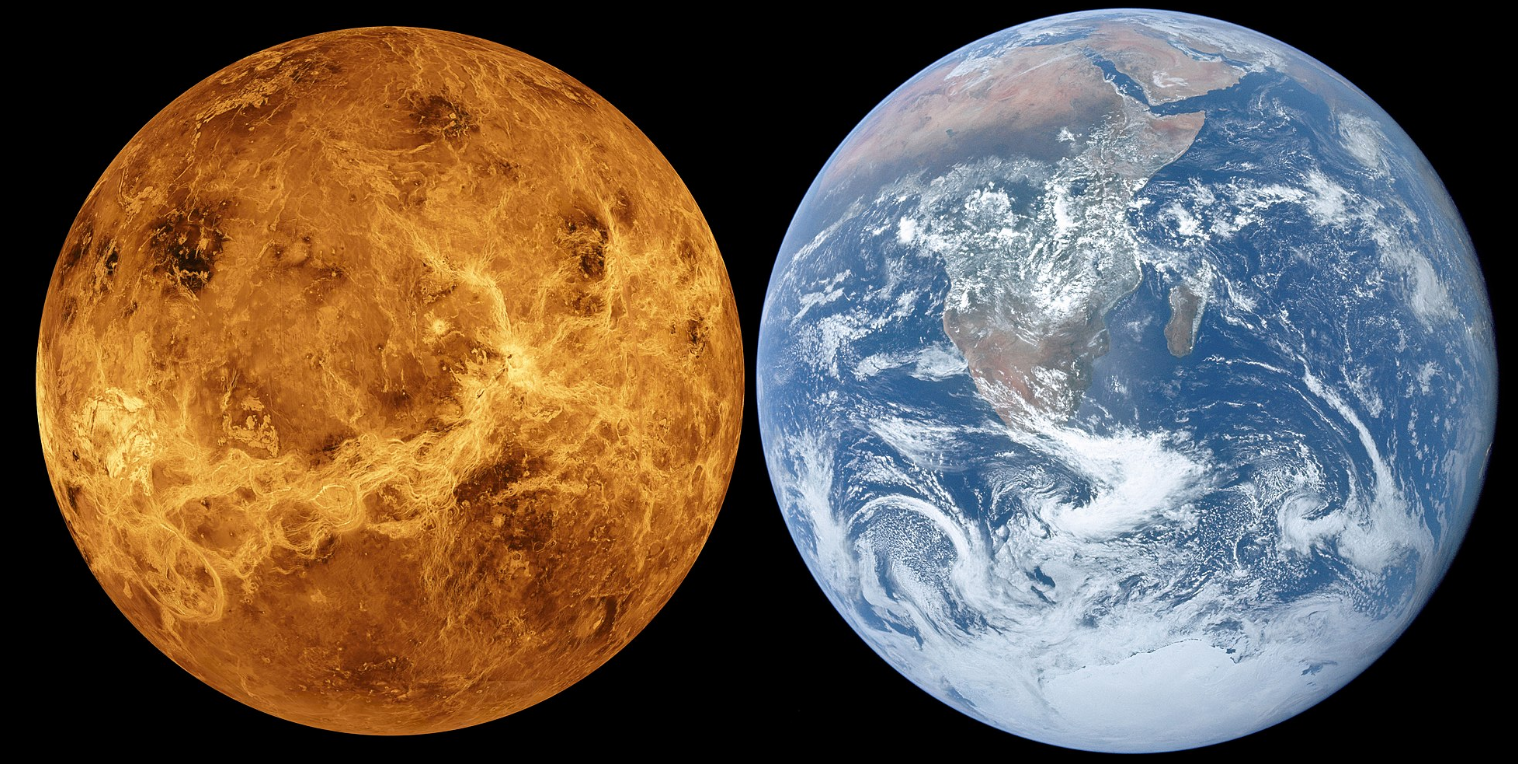Infrared image of Venus' night side (BigThink/Is there phosphine, and maybe life, on Venus after all?)
Some cosmologists have introduced the idea of the very primitive lifeform. That model of very primitive protobacterial is only the water droplet where is a protein net around that thing. Then there is the genome and cell organelle or cell factory that produces that protein network. If that organism lives on the hot planet it would not need even mitochondria.
So could that kind of lifeform live in the clouds of planet Venus? That's a good question. The lifeform of the planet Venus is not intelligent or there are no visible civilizations. But there can live some kind of protobacterial. That is similar to the very first organisms on Earth.
The question about life on Venus is interesting. That lifeform could be very different than on Earth. If there is some kind of protobacterial. That means they might be quite similar to the very first organisms on Earth. That means they might use the heat of Venus's higher atmosphere as an energy source. So they might not need mitochondria.
They use the heat of the atmosphere just like the very first protobacterial used geothermal energy as the power source. Protobacterial are the simplest known organisms. They are the RNA-bite. cell organelles that allow the protobacterial to copy themselves. And the protein bag that surrounds this primitive lifeform. The size of those organisms could be so small that they could hover in the clouds of Venus.
But are those bacteria, if they existed formed in Venus? Or are they coming from the Earth?
But as we know proving the existence of that kind of lifeforms is very difficult. The high temperature of that planet allows us to use external energy sources. And phosphine in the Venus atmosphere can be the result of the metabolism of that kind of primitive organism. But it can also be the result of some chemical reactions in the Venus atmosphere. The thing is that even if there are some bacteria in the clouds of Venus.
The source of those bacteria can be on Earth. That means that the probes that are not well sterilized could transport organisms from Earth to Venus. And even if the high temperature on the surface of that planet destroys all organisms.
The sulfur-eating archaebacteria can stay alive at the top layer of the clouds of that planet. But confirming that thing requires more investigations. And until the results of those investigations are confirmed, we must say that the (still hypothetical) lifeform of the planet Venus is not confirmed. And the question remains.
https://bigthink.com/starts-with-a-bang/phosphine-life-venus/
Size comparison of Venus and Earth (Wikipedia/Venus)
There is a hypothesis that the origin of life is on the planet, Venus.
When we are thinking about the conditions on the planet Venus where the temperature rises to 600 degrees celsius. The carbon monoxide atmosphere causes an extreme greenhouse effect. And sulfur acid clouds are covering that hellish world we cannot imagine the more hostile place to living organisms. But if we think of the conditions of Earth before the life formed on our planet they were very similar to Venus.
There are high mountain areas like Maxwell Montes on Venus. And some of those mountains are rising above those sulfur acid clouds. So could Venus be the home of life? The high temperature of the atmosphere of that planet makes it possible that the protobacterial don't need mitochondria at all. They can take the energy that they need. From the atmosphere of that planet.
We can think about the possibility that the first protobacterial formed on Venus and traveled to the Earth inside some meteorite. That flew away from Venus. Because of an asteroid impact, those hypothetical protobacterial could survive in the conditions on the young Earth better than some martian bacteria. If that hypothesis is true the first protobacterial would come from Venus and then they would start to advance to the lifeforms that we know.
https://en.wikipedia.org/wiki/Maxwell_Montes
https://en.wikipedia.org/wiki/Venus






No comments:
Post a Comment
Note: Only a member of this blog may post a comment.